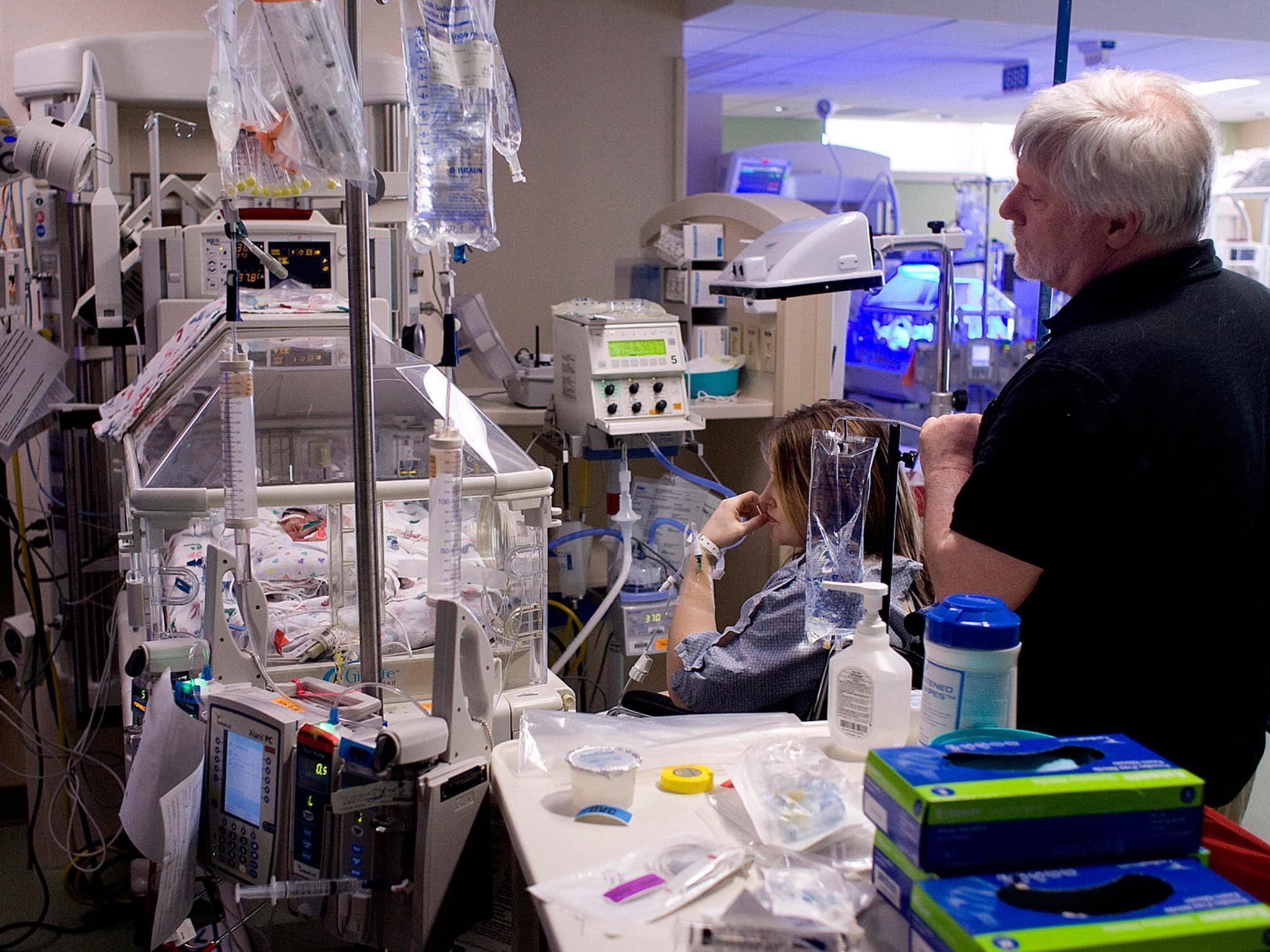What it is like to give birth to a 1lb premature baby at 23 weeks
"I wanted to put her back inside or do anything to keep her safe. I told her ‘I’m sorry’ even though I didn’t do anything wrong.”

Kelley and her husband Tom French had been trying for a child for four years before she fell pregnant with a donor egg. Two days after the 20-week ultrasound which confirmed their baby was healthy, Kelley started bleeding. She was crushed.
“I thought I’d lost the baby. I felt like a colossal failure,” French told The Independent.
She hadn't lost the baby. But doctors told her she needed to keep it alive for four weeks before it could be delivered. At 23 weeks and six days into the pregnancy, Juniper was born.
The experience that followed, where the two parents were glued to her incubator in the neonatal intensive care unit for six and a half months, has been retold by French in her book Juniper: The Girl Who Was Born Too Soon.
“The people we were on that day, we were not the same people six months later,” said French.
When Juniper came into the world, she weighed just 1lb 4oz and was what doctors describe as on “the edge of viability”. She couldn’t see, because her eyes were fused shut. Her skin was transparent.
Before that, doctors had warned the couple that there was an eighty percent chance that she would die, or be born with a moderate to severe disability. They just couldn’t predict exactly where or with what.
“The thing about having a micro preemie,” said French, using the term used to describe extremely premature babies, “is it’s not that there’s a possiblity of disability that's worrying, it’s that there’s so much uncertainty. You don’t know what disability the baby will have on what part of body. You can’t prepare.”
“When you have a baby that early you'r terrified that you’re going to get your heart broken,” said French, as many micro preemies die within days.
“When I met her for the first time I was just so scared and I was so wracked with guilt and I wanted her so much. I wanted to put her back inside or do anything to keep her safe. I told her ‘I’m sorry’ even though I didn’t do anything wrong.”
However tough, the experience changed the couple for the better, said French.
“People will say ‘you’re so strong and brave, I could never do that.’ Well, it’s not about being strong or brave. The world keeps turning and you can’t jump off it.
“But you learn to appreciate and celebrate moments. When we saw our daughter lurch into consciousness, it’s very profound and spiritual and transforming. I’d do anything to spare her that experience, but for myself I would not change a single day.
“I will never forget holding her hand between my fingertips. And holding her for the first time. And watching her eyes open for the first time and seeing her look at me.”
Since French wrote a Pulitzer-nominated piece on her experience and released the book, hundreds of people have been in touch with the couple to share their own stories. Perhaps the most touching are adults who were born premature and who have reassured the couple that Juniper can live a safe and healthy life.
“I met one at a book event and they wanted us to know that they’re strong, they’re proud of their scars. Those make me cry because I was afraid to imagine her grown up for so long. And to see beautiful strong smart grown women is just really powerful.”
Juniper is now aged five and knows – as much as a child can – about how she came into the world.
“She falls off her bike and she gets back up and says ‘I never give up!’ She draws strength from it.”
French adds that Juniper is at the age where she is fascinated by the prospect of death, but doesn’t quite understand it.
“She asked Tom the other day: ‘when I was in hospital you were very worried because you thought I might die?’ And he said yes. And she asked ‘did I die?’,” French recalled, laughing.
“I don’t know on what level she has processed it. But she knew she was very small and sick and a lot of people took care of her and loved her, and that she was very strong.”
Join our commenting forum
Join thought-provoking conversations, follow other Independent readers and see their replies
Comments
Bookmark popover
Removed from bookmarks